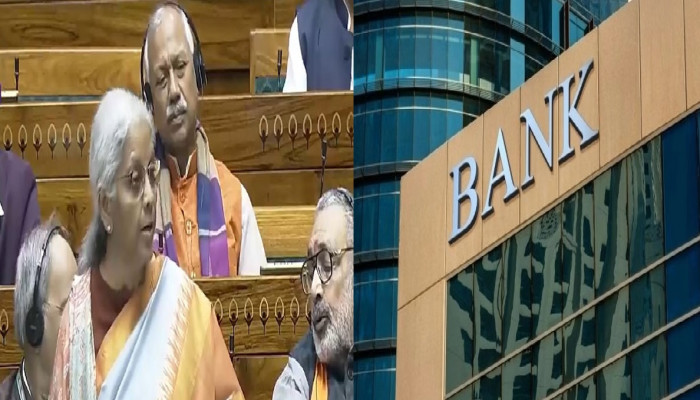Banking laws amendment bill 2024 passed in Lok Sabha, paving the way for sector reforms
- In Reports
- 05:33 PM, Dec 04, 2024
- Myind Staff
On Tuesday, the Banking Laws (Amendment) Bill, 2024 was passed in the Lok Sabha during the ongoing winter session of Parliament, marking a key milestone in India’s efforts to reform its banking sector. Finance Minister Nirmala Sitharaman highlighted the significant provisions of the Bill, which aim to modernise banking regulations, improve operational efficiency and enhance governance in the sector.
A major provision of the Bill is the expansion of the nominee system for bank accounts and fixed deposits. Previously, depositors were allowed to nominate only one individual to inherit the funds in their accounts. The new amendment allows depositors to nominate up to four individuals, thereby simplifying the process of distributing funds after the account holder's death. This change aims to address the issues families faced during the COVID-19 pandemic, where access to funds was often delayed due to unclear succession plans. The Bill also provides depositors with the option of simultaneous or successive nominations, offering greater flexibility in assigning percentage shares to nominees or setting a predefined order of inheritance.
Another key aspect of the Bill is the revision of the threshold for “substantial interest” in bank directorships. The limit has been raised from ₹5 lakh to ₹2 crore, a figure that had remained unchanged for nearly 60 years. This change is designed to promote greater transparency and governance in the banking sector, ensuring that those with significant financial interests are held accountable in the decision-making processes of banks.
The Bill also introduces important modifications to the regulatory reporting requirements for banks. Under the new provisions, the deadline for submitting reports has been shifted to the 15th and last day of every month, replacing the earlier system where reports were submitted on the second and fourth Fridays. This adjustment is expected to streamline the reporting process, making it more efficient and timely for regulators and financial institutions alike.
In terms of governance, the Bill offers greater flexibility to banks when it comes to the remuneration of statutory auditors. By allowing banks to align auditor compensation with industry standards, the amendment aims to attract and retain skilled professionals for these crucial roles.
The amendment also brings changes to the tenure of directors in cooperative banks, extending their term from 8 years to 10 years, in line with the constitutional amendments introduced under the Constitution (Ninety-Seventh Amendment) Act, 2011. Additionally, it enables directors of Central Cooperative Banks to serve on the boards of State Cooperative Banks, further promoting governance cohesion across these institutions.
Sitharaman underscored that the overall aim of the Bill is to strengthen banking governance while improving customer convenience. The amendments are designed to create a more robust regulatory framework that protects investors and enhances transparency in banking operations. By focusing on streamlining processes and bolstering the governance structure, the Bill seeks to prepare the Indian banking sector for future challenges and opportunities.
One of the key impacts of the Bill will be the support it provides for banks and financial institutions to raise capital. By introducing measures that facilitate the issuance of bonds, loans, and other financial instruments, the Bill will help banks navigate the evolving financial landscape. Sitharaman noted that the overall health of Indian banks has improved, enabling them to become more competitive in the global market.
The reforms introduced by the Banking Laws (Amendment) Bill, 2024 are expected to bring about significant positive changes in the Indian banking sector. These include improved governance, greater investor protection and enhanced customer convenience, especially in the context of growing digital banking. The Bill is seen as a forward-looking step, aligning Indian banking regulations with global standards and modern financial practices.
Initially outlined in Sitharaman’s 2023-24 Budget Speech, these amendments were introduced in the Lok Sabha as part of ongoing efforts to improve the banking sector. The Bill encompasses updates to several important legislative frameworks, including the Reserve Bank of India Act, 1934, and the Banking Regulation Act, 1949. With the passage of the Bill, India’s banking sector is set to benefit from long-term reforms that will ensure its continued growth and global competitiveness.







Comments